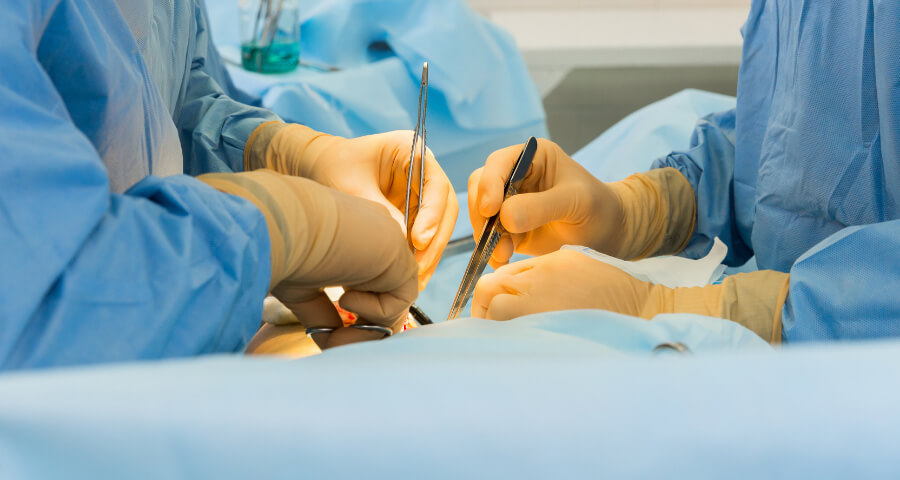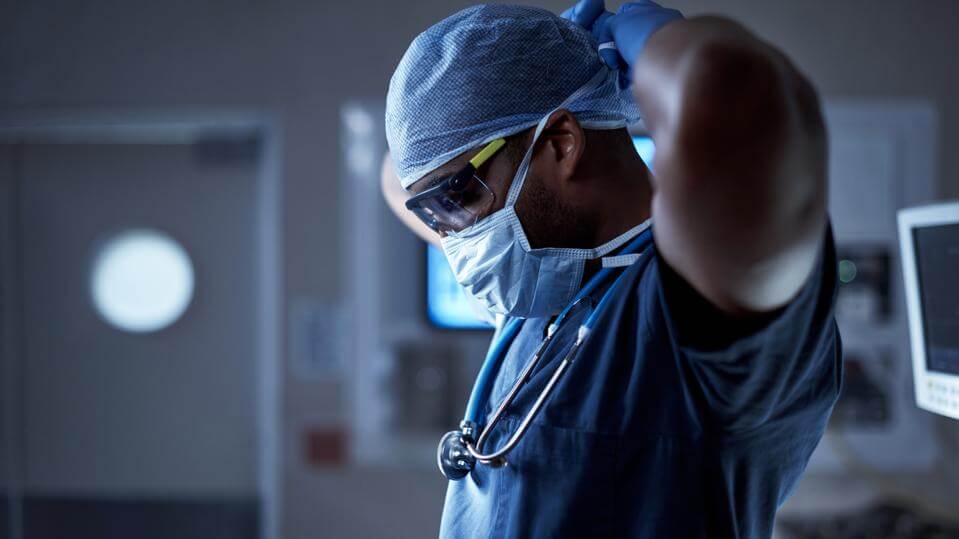Considering liposuction in Sydney? It’s important to know and understand the regulations in NSW that ensure your safety and the quality of care you receive. In Sydney, liposuction and other cosmetic procedures are governed by strict guidelines set by the Royal Australasian College of Surgeons (RACS) and the Australian Society of Plastic Surgeons (ASPS).
The Medical Board of Australia (MBA) also enforces a code of conduct that all liposuction doctors must follow. In this article, we’ll break down these regulations in simple terms, so you can understand what to look for and expect when considering liposuction in Sydney.
Regulations for Surgeons, Doctors & Nurses

Source: ama.com.au
When considering liposuction in Sydney, it’s essential to know that the surgeons performing the procedure must meet stringent qualifications and training standards to ensure your safety and the best possible outcomes.
Surgeon Qualifications and Experience
Surgeons need to be highly qualified and well-trained. Here’s what that means:
- Board Certification: Surgeons should be certified by reputable professional bodies like the Australian Society of Plastic Surgeons (ASPS).
- Extensive Training: They must undergo comprehensive training in liposuction techniques and patient safety protocols.
- Ongoing Education: Continuous professional development is crucial to stay updated with the latest advancements and safety practices.
Liposuction Doctor Regulations
In Sydney, different types of medical practitioners (doctors), are allowed to do liposuction procedures. However, all people performing liposuction in Sydney must be registered medical practitioners.
Medical practitioners who do the actual liposuction procedure must be at least one of the following1https://www.medicalboard.gov.au/Codes-Guidelines-Policies/Cosmetic-medical-and-surgical-procedures-guidelines.aspx:
- Have completed at least 100 supervised liposuction procedures, including at least 5 on the specific body part they will treat
- Be a Fellow of the Royal Australasian College of Surgeons (RACS) in Plastic and Reconstructive Surgery or another relevant specialty, or a Fellow of the Australasian College of Dermatologists trained in liposuction.
Anaesthesia and Sedation
For anaesthesia or high-risk sedation:
- Specialist Anaesthetists: Should be a Fellow of the Australian New Zealand College of Anaesthetists.
- GP Anaesthetists: In some cases, qualified GP anaesthetists with specific training in anaesthesia can perform these roles, especially in remote areas.
Nursing Staff
Nurses involved in your care must have:
- Relevant Experience: Recent experience in surgical care, including post-operative care.
- Monitoring Skills: Be skilled in recognizing any signs of complications.
Health Practitioner Registration
All health practitioners involved in your liposuction procedure must:
- Be Registered: With the Australian Health Practitioner Regulation Agency (AHPRA).
- No Restrictions: Not have any restrictions that would affect their ability to provide care.
- Resuscitation Training: Be trained and certified in resuscitation.
- Stay Updated: Continuously update their knowledge and skills through professional development.
Regulations for Facility Standards

Source: forbes.com
When it comes to liposuction surgery, the facility where the procedure is performed plays a big role in ensuring your safety and the quality of care you receive. Here’s what you should look for2https://legislation.nsw.gov.au/view/html/inforce/current/sl-2017-0483:
- Accreditation: The facility needs to be accredited by recognized organisations like the Australian Health Practitioner Regulation Agency (AHPRA) and the National Safety and Quality Health Service (NSQHS) Standards. This means the facility meets high standards for patient care and safety.
- Sterile Environment: Keeping everything clean is crucial to prevent infections. The facility should follow strict hygiene protocols and have regular cleaning schedules to ensure everything is spotless and safe for your procedure.
- Advanced Equipment: The facility should have up-to-date medical equipment to handle any emergencies that might come up during the procedure. Having the right tools ensures that if any complications occur, they can be managed quickly and effectively.
How Patient Safety is Regulated
Before the Surgery
- Health Checks: Before you have liposuction, you’ll need a thorough health check. Your doctor will review your medical history, current medications, and any allergies to make sure you’re fit for the procedure.
- Understanding the Risks: It’s important to understand both the risks and benefits of liposuction. You’ll need to give written consent to show you’re aware of these, including any costs involved.
After the Surgery
- Follow-Up Care: After your surgery, follow-up appointments are essential. These help monitor your recovery and manage any potential issues.
Liposuction Limits in Sydney
In Sydney, any clinic doing more than 200 ml of liposuction must be registered with the Department of Health3https://www.health.vic.gov.au/guideline-for-providers-of-liposuction.
The most fat that can be safely removed at one time is 5 litres. If the technique used leaves fluid in your body, this fluid counts toward the 5-litre limit.
- Smaller Patients: For smaller patients, the safe amount is even less.
- Different Techniques: The 5-litre limit applies mainly to the tumescent technique, which is commonly used. Other techniques, like dry liposuction, have lower safe limits.
- Fluid Considerations: For methods like water-assisted liposuction, the maximum amount removed should be reduced further.
Doctors must not cut down on the fluid used in tumescent liposuction just to increase the amount of fat removed, as this can be dangerous. If too much fat needs to be removed, it should be done in separate sessions.
When to Postpone Liposuction
Liposuction should be delayed if you have any of the following:
- Infections, especially in the skin
- Symptoms like the flu, respiratory issues, or possible COVID-19
- Poorly controlled diabetes (HbA1c >75mmol/mol or 9%)
- Chest pain or shortness of breath on the day of surgery
- New or unexplained heart rhythm issues
- High blood pressure without a clear cause
- Recently taken blood thinners
- A recent vaccination or one planned within 2 weeks of surgery
- Had COVID-19 in the past 8 weeks or have ongoing symptoms
- Uncontrolled psychiatric or psychological conditions
Assessment of Patient Suitability for Liposuction
Step 1: Getting a Referral
Before you can even consider liposuction, you’ll need a referral from an independent doctor who doesn’t do cosmetic procedures. This helps ensure an unbiased opinion about whether you’re a good candidate for the surgery.
Step 2: Understanding Your Motivation
Your surgeon should talk with you about why you want the surgery. They need to make sure your reasons are healthy and your expectations are realistic. It’s important to go into this with a clear understanding of what liposuction can and cannot do for you.
Step 3: Checking Your Mental Health
You’ll also need a psychological assessment to check for any underlying issues like body dysmorphic disorder (BDD). This is done using validated tools. If any significant psychological concerns come up, you’ll be referred to a psychologist, psychiatrist, or another independent doctor for further evaluation.
Step 4: Exploring Alternatives
Your surgeon should discuss all your options, including non-surgical treatments and the choice to not have surgery at all. It’s important to consider these alternatives so you can make the best decision for your health and well-being.
Step 5: Surgeon’s Ethical Responsibility
Finally, your surgeon has an ethical duty to refuse surgery if they believe it’s not in your best interest. This ensures that your safety and health are always the top priority.
Patient Consultation Type and Timing
Before your liposuction, you’ll need to have at least two consultations. One of these must be an in-person meeting with the surgeon who will perform the procedure. The second consultation can be either in person or via video call.
You shouldn’t feel rushed into making a decision. That’s why you won’t sign any consent forms during your first consultation. You can only give your consent after you’ve had an in-person consultation with your surgeon. This ensures you have all the information you need and can ask any questions face-to-face.
After you’ve had your two consultations and given informed consent, there’s a mandatory seven-day cooling-off period. This gives you time to think about your decision before you can book the surgery or pay a deposit.
Informed Consent Regulations
What is Informed Consent?
Informed consent is about making sure you have all the information you need to make a well-informed decision about your surgery. Your surgeon is responsible for explaining everything clearly and making sure you understand the details, risks, and costs involved.
Getting the Right Information
Your surgeon will discuss the surgery with you and provide written information in plain language. If English isn’t your first language, they’ll make sure you get the information in a language you understand. They should give you realistic information about the surgery without making it sound simpler or more glamorous than it is.
Details About the Surgery
You’ll learn exactly what the surgery involves, including the type of anaesthesia and pain management you’ll need. The surgeon will tell you where the surgery will take place and if the procedure is new or experimental. You’ll also get an idea of the possible outcomes, both short-term and long-term, and the risks and complications that might come up.
Considering Your Health
The surgeon will talk to you about how your current health conditions might affect the surgery and recovery. They’ll also discuss the possibility of needing further treatment or revision surgery in the future.
Knowing Your Surgeon
You’ll be informed about your surgeon’s qualifications, training, and experience. If other practitioners will be involved in your surgery, you’ll learn about them too.
Understanding the Costs
You’ll get a clear breakdown of the total cost of the surgery, including any implants or devices, fees for other medical practitioners, and facility costs. The surgeon will explain payment details, including deposits, payment dates, and refund policies. You’ll also be advised that cosmetic surgery isn’t covered by Medicare.
Implant Information
If your surgery includes an implant, you’ll receive an information leaflet before the surgery and an implant card afterward, both approved by the Therapeutic Goods Administration (TGA).
Photos and Videos
If the surgeon wants to take photos or videos of you, they’ll need your consent. They’ll explain how these images will be used, stored, and who will have access to them. You have the right to view the images before giving consent for their use in advertising and can refuse their use if you’re not comfortable.
Timing of Consent
You must give your informed consent at least seven days before the surgery during a consultation, which can be in person or via video. On the day of the surgery, the surgeon will reconfirm your consent. You’ll receive a copy of the signed consent form for your records.
Read more about informed consent here.
Patient Management Post-Operation
Your surgeon is responsible for your care after the surgery. This includes making sure you recover well and managing any issues that might come up.
Immediate Post-Surgery Care
- If your surgery is performed away from your surgeon’s main office, they must be available for at least 24 hours after the procedure to address any immediate concerns.
- The facility where you have your surgery must have plans in place to handle any complications or emergencies that might arise during or after the surgery.
After You Go Home
- On the night after your surgery, you need to have a responsible adult with you who can contact your surgeon if needed or take you to the emergency department. If you live alone or don’t have someone to stay with you, you shouldn’t have liposuction at a day procedure centre.
Contact and Follow-Up
- Your surgeon or a designated person must be available and reachable for the first 24 hours after your surgery. Ideally, your surgeon should have admitting rights to a local hospital or an arrangement with a doctor who does, to ensure you can be admitted quickly if necessary.
- If you need to be admitted to a hospital due to complications, your surgeon will coordinate your care until the hospital takes over. If your surgeon doesn’t have admitting rights, they must have a clear plan for managing any issues promptly.
- If your care needs to be transferred to another doctor, your surgeon should have a direct conversation with them before the transfer happens to ensure a smooth handover.
Post-Surgery Check-Ins
- Your surgeon should be available for an in-person review on the night of the surgery in case of any major issues.
- Your surgeon will check on your progress 1-3 days after the surgery to make sure you’re healing well.
- Another follow-up will happen after one week to monitor your recovery.
Patient Rights: Complaints
If something goes wrong during or after your surgery, these issues must be reported and dealt with quickly to improve patient safety.
Your Rights as a Patient
You have several rights to ensure you receive proper care and can voice any concerns:
- Speak Up: If you’re unhappy with your treatment, you can talk directly with your surgeon to resolve the issue.
- Clinic Complaints Process: You can also use the clinic’s complaints process.
- Health Complaints Entities: You can make a complaint to the health complaints body in your state or territory.
- Regulatory Bodies: Additionally, you can complain to organisations like the Australian Health Practitioner Regulation Agency (AHPRA), the Health Care Complaints Commission, the Medical Council of NSW.
Non-Disclosure Agreements (NDAs)
If you sign an NDA, it must state that you can still file a complaint with the appropriate health authorities.
Speak with Levant Cosmetic Surgery for More Information
Liposuction is a serious procedure, and New South Wales’ liposuction regulations are designed to keep you safe. The right clinic and surgeon will strictly follow the regulations in place, and be able to answer any questions you have about liposuction surgery.
If you have any additional questions, get in touch with Levant Cosmetic Surgery. We’re here to ensure a safe and successful liposuction procedure, giving you all the facts you need for a satisfying outcome.
Email [email protected] or call us on 1300 323 772.
